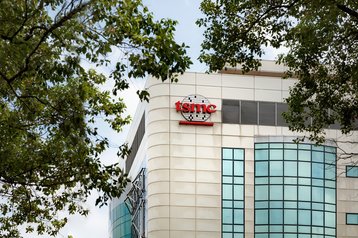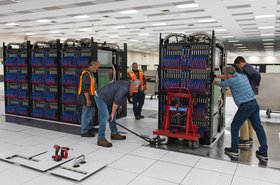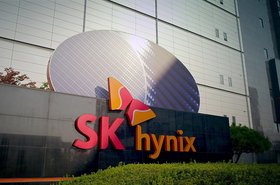Three months after TSMC announced further delays at its $40 billion Arizona fabs, the chip manufacturer has now said the plant is expected to be operating at full capacity by the end of the year.
The announcement comes several weeks after it was first reported that TSMC is set to be awarded more than $5 billion in federal grants under the US CHIPS and Science Act.
The two plants that TSMC is building to produce 4nm and 3nm semiconductors have been plagued by delays since they were first announced in 2021. In July 2022, the company pushed back the production timeline for its 4nm chips at the site from 2024 to 2025, citing issues around sourcing the necessary talent.
In January 2024, outgoing TSMC chairman Mark Liu announced further delays, admitting that production at the second, more advanced, fabrication plant wouldn’t be starting in 2026 as originally proposed, instead saying that the site wouldn’t be operational until 2027 or 2028.
Now, according to a report from the Chinese news outlet money.udn, TSMC is expecting to begin pilot production operations by mid-April, with the preparations for mass production to be completed by the end of the year. It is unclear whether both fabs or just the 4nm facility are now due to be in production ahead of schedule.
TSMC did not provide a comment to money.udn regarding its report. However, the company is scheduled to hold a press conference on April 18 to press conference where it is expected to provide updates on the new timeline.
TSMC to address talent shortages through new partnership with Japanese university
Talent shortages were cited multiple times by TSMC as a cause for the delays at the Arizona plant and according to a report from Nikkei Asia, the chip manufacturer is now looking to directly address these issues at its Japanese plants by signing an agreement with Kyushu University to help support semiconductor talent in the region.
Having opened a new production facility in Kumamoto, a city on the island of Kyushu, in February 2024, TSMC then announced plans to open a second site in the city.
However, according to projections from a consortium of Kyushu’s industry, government, and academic outlets, it’s believed that the island will face an annual shortage of around 1,000 semiconductor-related personnel over the next decade.
As a consequence, the plans for TSMC’s second Kumamoto plant include a provision for the chipmaker to offer a semiconductor curriculum at Kyushu University.
Under the reported terms of the Memorandum of Understanding (MoU), TSMC will send staff to work as instructors at the university’s Education Center for Semiconductors and Value Creation, in an effort to shore up the sector’s talent pipeline. The agreement also sets out possible joint research opportunities between the two partners.







